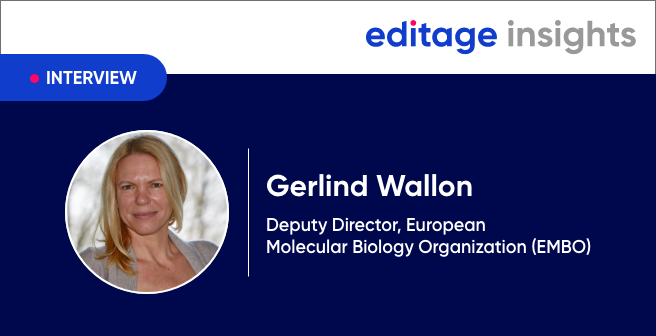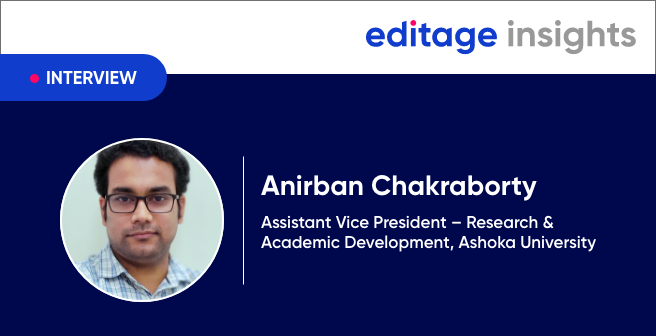“Health information is a universal right, not a privilege or commodity.”

Dr. Robert Porter is the Editor-in-Chief of The Merck Manuals, one of the oldest and most widely used medical resources for medical professionals and consumers. Dr. Porter earned his MD from Hahnemann University in Philadelphia, Pennsylvania, and completed an Emergency Medicine residency at Mt. Sinai Medical Center in Cleveland, Ohio, in 1983. After that, he practiced Emergency Medicine full time in the Philadelphia area for 18 years until joining the Merck Manuals in 2001. Since 1983, he has held a variety of clinical and teaching appointments in the Philadelphia area and has served on the Board of Directors of the Pennsylvania College of Emergency Physicians and the Pennsylvania Trauma Systems Foundation. He is currently Clinical Assistant Professor in the Department of Emergency Medicine at the Thomas Jefferson University Sidney Kimmel Medical College. At Merck, Dr. Porter oversees the online and print publication of all the Merck Manuals.
Dr. Porter’s passion for medical education and communication of accurate medical information to everyone alike helps him drive successful content initiatives for The Merck Manuals. In this interview, he provides an overview of The Merck Manual and tells us how The Manual has evolved since its first publication in 1899. Sharing a larger perspective, Dr. Porter talks about the issues with medical information in today’s age of digitization – everybody has access to an increasing amount of medical information, but not all of this is accurate or free from an agenda of promotion. And this is where researchers and medical and publication professionals step in to disseminate accurate and current information, because access to health information should be considered a universal human right and not a privilege that only a few can enjoy.
Dr. Porter, for the benefit of our readers, could you please share an overview of The Merck Manual? What is The Manual’s mission? What differentiates The Manual from other sources of medical information?
The Merck Manual is a general medical reference work that covers description, diagnosis, and treatment of diseases in all fields of medicine. It was first published in 1899 by Merck, the pharmaceutical company, and is still published by the descendant of the original company, Merck & Co., Inc., Kenilworth, New Jersey, USA. The Manual is known as the Merck Manual in the USA and Canada, and is now called the MSD Manual in the rest of the world. There have been 19 total printed editions in English, which for at least 50 years have been translated into multiple languages. Over the years, The Manual has appeared in at least 16 languages besides English. In 1997, we introduced a consumer version of The Manual, covering the same topics in simpler, consumer-friendly language.
The mission of The Manual is to share the best current medical information to enable more informed medical decisions, enhance relationships between patients and professionals, and improve health care outcomes around the world.
What sets the Manual apart is that although published by a pharmaceutical company, The Manual has complete editorial independence to present the best current medical information. The over 350 topic authors are respected academic experts in their field and are not Merck or MSD employees and are not in any way involved in promoting Merck or MSD products. In addition, the authors’ material is peer reviewed by leading external medical specialists. The contents of The Manual are not reviewed or approved by anyone at Merck or MSD, besides myself and my editorial team.
How has The Merck Manual evolved since its first issue? Does it match up to the vision you had initially set for it?
As everyone knows, medicine and medical education were very different in 1899 when The Manual first appeared. The general medical textbook as we now know it did not exist. The Manual’s first edition was only 199 pages long and consisted merely of an alphabetical catalog of diseases with a simple list of the remedies used at the time for each disease. It had no recommendation of which of the dozens of treatments mentioned was superior, no explanation of why a treatment was thought to work or any discussion of possible adverse effects. Although the 1st edition contained some treatments that are still in use—for example, nitroglycerin for angina, colchicine for gout, and digitalis for heart failure—many of the treatments were completely implausible (such as giving laxatives for chicken pox and gin for pneumonia), and some were actually counterproductive (such as giving nitroglycerin for shock, cocaine for insomnia, and opium for constipation).
As medicine became more scientifically-based in the 1920s and ‘30s, so did The Manual. And by the 1950s, it followed the now-standard medical textbook format of discussing pathophysiology, symptoms and signs, diagnosis, and treatment. By the 1980s, The Manual had been translated into many languages and was one of the most widely used medical references in the world. In the 1990s, because many non-professionals were reading The Manual for medical information, we developed the Consumer Version (first known as the Home Edition).
Before doctors and lay people began to depend on digital references for information, print editions of the professional version and consumer version each sold over a million copies. Now, although print sales have declined, the online versions in English are visited by several million unique users per month. There are also several million users of the online Japanese and other non-English Manuals. With the online versions, we are able to implement our vision for the Manuals as a multimedia source of medical information. We plan to continue adding multimedia content to provide a unique educational tool and experience through The Manual.
Your mission is to provide the best and more reliable medical and health information of the day? How do you ensure that the content is updated, accurate, and easily accessible? Also, what are some of the challenges you face here?
In addition to using numerous medical experts as mentioned above, all the Manuals’ authors agree to provide not one but a series of updates of their assigned topics over a period of time. They update the professional version and then the Manuals’ editorial staff use their changes to do an initial update of the consumer version of the same topic. The authors then review and revise the consumer version. The Manuals’ editorial staff work with the authors to make sure that all topics are written in the most clear, straightforward language possible. We feel that even the most complicated subjects can be explained in clear language that does not sound like awkward “medical writing.”
The biggest challenge we face is the ever-increasing demands on our medical experts’ time. Academic physicians today must see more patients and complete more paperwork (although it is now often electronic) than in the past. Thus, highly-credentialed specialists are less inclined to agree to contribute to The Manuals and other medical reference works, and those who do often take longer to finish their work.
In April 2015, you posted an announcement about the New Merck Manual, which is all-digital. What led to the decision of moving from a print-only publication to an online one? What are the features of the new all-digital version?
Although people still continue to enjoy reading print books for pleasure, people, particularly professionals, now turn to the internet for reference information. This is because digital information can be updated much more easily, cheaply, and handily than a printed book, which of course can be updated only every four or five years. That is why The Manuals switched to an all-digital strategy in English. The online format allows us to include multimedia enhancements including photos, videos, audio podcasts, and interactive case simulations, which was not possible with the print format.
The new, all-digital Manuals are now our primary product in English. However, some of our publishing partners outside of the USA have decided to continue to produce print versions in other languages.
Thanks to digitization, there is an influx of information on everything, including medicine and healthcare. Unfortunately, not all of this information is accurate. How do you think this affects medical knowledge and scientific development?
There are several issues with medical information today. First, there is an ever-growing amount of valid new data from medical journals, scientific meetings, and guidelines and recommendations. Even though the information is for the most part trustworthy, the volume is staggering and well beyond the ability of even the most diligent physician to keep up with. In addition to this valid, peer-reviewed data, the digital world has an equally large amount of unverified information, particularly information aimed at consumers and patients. Although some of this information is correct and useful, some is biased towards selling a product, and some is incorrect or even dangerous. Thus, it is difficult for both professionals and consumers to be sure that information they find online from a search engine is accurate.
Although I think that overall, the ease of finding information online has made physicians and consumers better informed than ever, the digital age has also enhanced the spread of misinformation. People, both professionals and consumers, are slowly becoming more cautious about accepting information found on the internet, particularly from sites in which it is not clear whether their mission is educational or commercial. Sites that have products and services for sale or that have a large amount of advertising may not be an unbiased source of information.
What role do researchers, publication professionals, physicians, and medical and healthcare professionals have to play in the dissemination of accurate and up-to-date information?
Researchers, medical specialty experts and publication professionals have a major role in disseminating accurate, current information. Researchers and specialists can help by contributing content to reputable, unbiased sites—it is always a challenge for The Manuals to find eminent physicians who have the time and interest in contributing. Publication professionals can help by keeping their information current, their sites unbiased and everything transparent.
Earlier this year, you announced a new initiative Global Medical Knowledge 2020. Could you tell us more about this?
We at The Manuals believe that health information is a universal right, not a privilege or commodity and we believe that every person is entitled to accurate and accessible medical information. The goal of our Global Medical Knowledge 2020 program is to make the best current medical information accessible by up to 3 billion health care professionals and patients by the year 2020. We will achieve this by regularly updating our Professional and Consumer versions of The Manual, and then translating these versions into multiple languages (and keeping the translations up-to-date with the English version). Then we will make all these versions available online for free worldwide, and will also make them available on mobile devices for free so that people who have a device but do not have reliable internet connectivity can still have the information they need. With the right mix of commonly used languages and devices, we think we will be accessible by up to 3 billion people by 2020.
Dr. Porter, what are (a) the most challenging and (b) the most fulfilling aspects of your role as Editor-in-Chief?
The most challenging aspects of running the Manuals center on keeping the content current and also well-written in traditional clear Merck Manual style. Authors (and, I must admit, editors) tend to want to polish and revise their words, even when no changes are needed for clear communication. This makes each step of the editing process longer and also makes the authors less willing to do frequent updates, because they perceive the task to be so burdensome. In addition, all these changes then have to be translated into all of our different languages. I am constantly challenged to keep everyone focused on revising only errors of omission or commission.
The most rewarding thing is being able to create and provide valuable information to people—to professionals, particularly students who are just beginning to learn medicine, and to the general public, who need to learn complex subjects in simple language.
Thank you, Dr. Porter!



